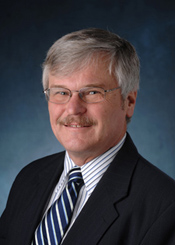Dr. Michael Louis Radelet

2011 DISTINGUISHED ALUMNI RECIPIENT
PhD 1977, Sociology
Professor and Chair, Department of Sociology, University of Colorado-Boulder
Michael L. Radelet is Professor, Department of Sociology, University of Colorado-Boulder. He served for 22 years on the faculty at the University of Florida before moving to Boulder in 2001. He was Chair of the Sociology Departments at the University of Florida from 1996-2001 and the University of Colorado from 2004-2009. In addition to his degree work, Radelet completed two years of postdoctoral training in the Department of Psychiatry, University of Wisconsin Medical School.
Radelet’s research focuses on capital punishment, especially the issues of erroneous convictions, racial bias, public opinion, and medical involvement. In 1987 he coauthored (with Hugo Adam Bedau) a paper in Stanford Law Review that documented some 350 defendants who were erroneously convicted of potentially capital crimes, a paper that is widely credited with introducing the problem of erroneous convictions into the modern death penalty debate.
Among his studies on race and death sentencing was one in Illinois, conducted for Governor George Ryan and used by the governor as part of the rationale for commuting 167 death sentences in 2003. More recently, Radelet has coauthored (with Glenn Pierce) a series of statewide studies on race and death sentencing for the Death Penalty Moratorium Project, American Bar Association. This spring Radelet and Pierce will publish papers on race and death sentencing in North Carolina (North Carolina Law Review) and East Baton Rouge Parish (Louisiana Law Review).
Radelet works closely with international organizations such as the United Nations and Amnesty International on death penalty issues. In recent years he has been especially involved in death penalty projects in China, Taiwan, Viet Nam, Zimbabwe, and several European countries.
While in Florida, Radelet worked with scores of death row inmates and went through last visits with approximately 50 inmates. He has testified in 76 death penalty cases and in front of legislative committees in a dozen states. He also works closely with families of homicide victims.